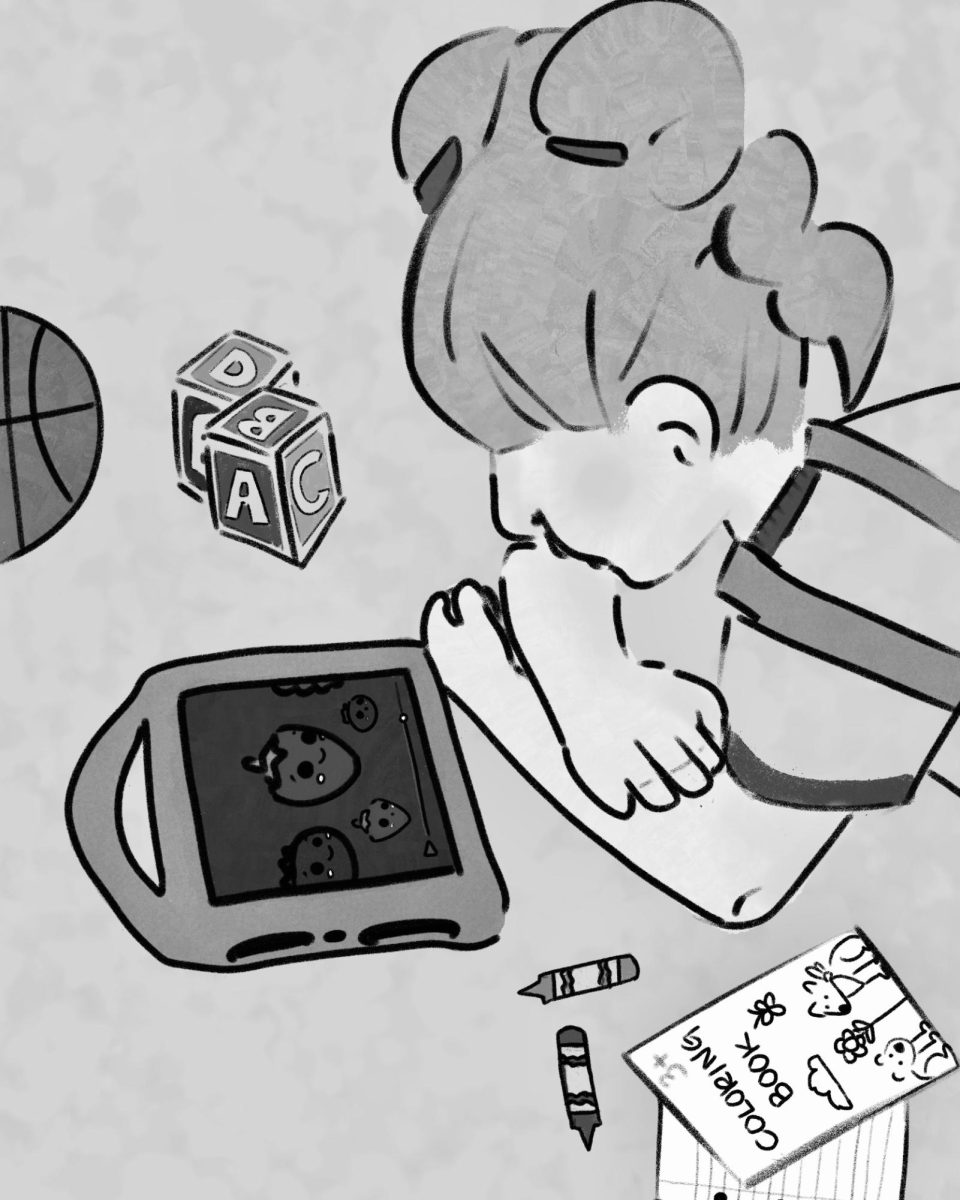Growing up in the 21st century, teenagers have had technology incorporated into their daily lives. Parents today shove technology in front of kids to keep them entertained, and now society is facing the consequences.
“Doom-scrolling” on social media may be leading to shortened attention spans in youth. When given unlimited screen time, some experience “brain rot,” a slang term that Gen Z uses to define brain fog, lethargy, or low attention span. It also leads to future heart-health problems. Studies at the Pediatric Clinics of North America say exposure to screens at a young age can lead to “lower cognitive abilities and academic performance in later years.”
‘Screenagers’ lack social awareness, and sometimes can’t even look up from their phones when being talked to.
“It affects classwork and other people around them,” junior Keziah Thibodeau said.
But technology usage in youths isn’t all bad, it allows for easier learning and a new outlook on socializing.
“Growing up with technology, kids have access to information both positive and negative. The process to acquire knowledge is different. Kids can find information really easily,” social science teacher Emily Pratt said.
Tierra Bonita Elementary alumni are familiar with utilizing technology, like iPads, in their everyday lives. The program “One for One” gave each student an iPad to use in class as a learning aid.
“It’s all I’ve ever known, so I can’t say for sure. I think we’re probably overstimulated with tech, but it’s such an ingrained part of our life,” senior Ryan Jorgensen said.
Students now are familiar with using Canvas, Google Classroom, and Studentvue to access assignments, check grades, and take notes. Access to information with such ease makes problem-solving a less practiced skill and pushes today’s youth to rely on technology for everyday life.
Children of today are reliant on technology, altering how they connect and function in society.















